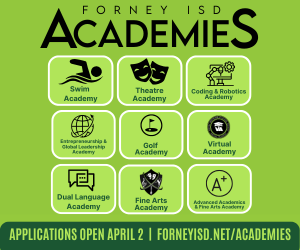Forney, TX - On March 18, 2025, the Forney City Council held a public hearing to discuss and approve an ordinance amending the city’s Comprehensive Zoning Ordinance. This amendment introduces new definitions and regulations for “Cigar Lounges” and “Hookah Lounges,” aiming to establish clearer zoning classifications for these establishments.
Forney, TX - On March 18, 2025, the Forney City Council held a public hearing to discuss and approve an ordinance amending the city’s Comprehensive Zoning Ordinance. This amendment introduces new definitions and regulations for “Cigar Lounges” and “Hookah Lounges,” aiming to establish clearer zoning classifications for these establishments.
City staff reported that several individuals expressed interest in opening cigar and hookah lounges in Forney, prompting the council to consider these amendments. Currently, the zoning ordinance does not define these specific uses, which has created ambiguity for potential business owners.
The proposed definitions specify that a cigar lounge is an establishment that derives more than 50 percent of its quarterly gross revenue from the sale of cigars for consumption on the premises. Importantly, these lounges would not permit entry for individuals under the age of 21 and would not be allowed to serve alcoholic beverages, although they could offer food and nonalcoholic drinks.
Similarly, a hookah lounge is defined as an establishment that derives a majority of its revenue from the sale of shisha and related accessories. Like cigar lounges, hookah lounges would also restrict entry to those aged 21 and older and could not sell alcoholic beverages, ensuring a focus on food and nonalcoholic offerings.
Both types of lounges must either operate in a stand-alone building or have separate air ventilation systems to prevent smoke from migrating to other areas within the same building, as per the International Building Code.
The Planning and Zoning Commission recommended approval of these definitions on March 6, 2025, and the council's decision marks a step forward in updating the city's zoning regulations.
Here are the new definitions
CIGAR LOUNGE – An establishment that derives more than 50 percent of its quarterly gross revenue from the sale of cigars for consumption on the premises by customers.
A cigar lounge does not allow individuals under the age of 21 to enter the premises, and does not have a permit or license to sell alcoholic beverages, but may serve food and nonalcoholic beverages for consumption on the premises by customers. A cigar lounge must be located in a stand-alone building or must operate a separate air ventilation system that prevents the migration of smoke into any other occupiable space (as defined by the International Building Code) of the same building.
HOOKAH LOUNGE – An establishment that derives more than 50 percent of its quarterly gross revenue from the sale of shisha for consumption on the premises by customers and the sale of accessories used for smoking shisha. A hookah lounge does not allow individuals under the age of 21 to enter the premises, and does not have a permit or license to sell alcoholic beverages, but may serve food and nonalcoholic beverages for consumption on the premises by customers. A hookah lounge must be located in a stand-alone building or must operate a separate air ventilation system that prevents the migration of smoke into any other occupiable space (as defined by the International Building Code) of the same building.
However, as Forney embraces these new establishments, one must ponder the broader implications of cigar and hookah lounges on community wellness. While these lounges can serve as social spaces for adults, fostering interaction and camaraderie, they may also bring concerns regarding health, particularly with the smoking of tobacco and shisha. To what extent do these lounges contribute to building a wholesome community? Are they merely places of leisure, or do they have a role in promoting social responsibility among patrons?
As the city moves forward, it will be essential to monitor how these new definitions and regulations affect the local community and whether they align with the city’s vision for a healthy and vibrant environment.








